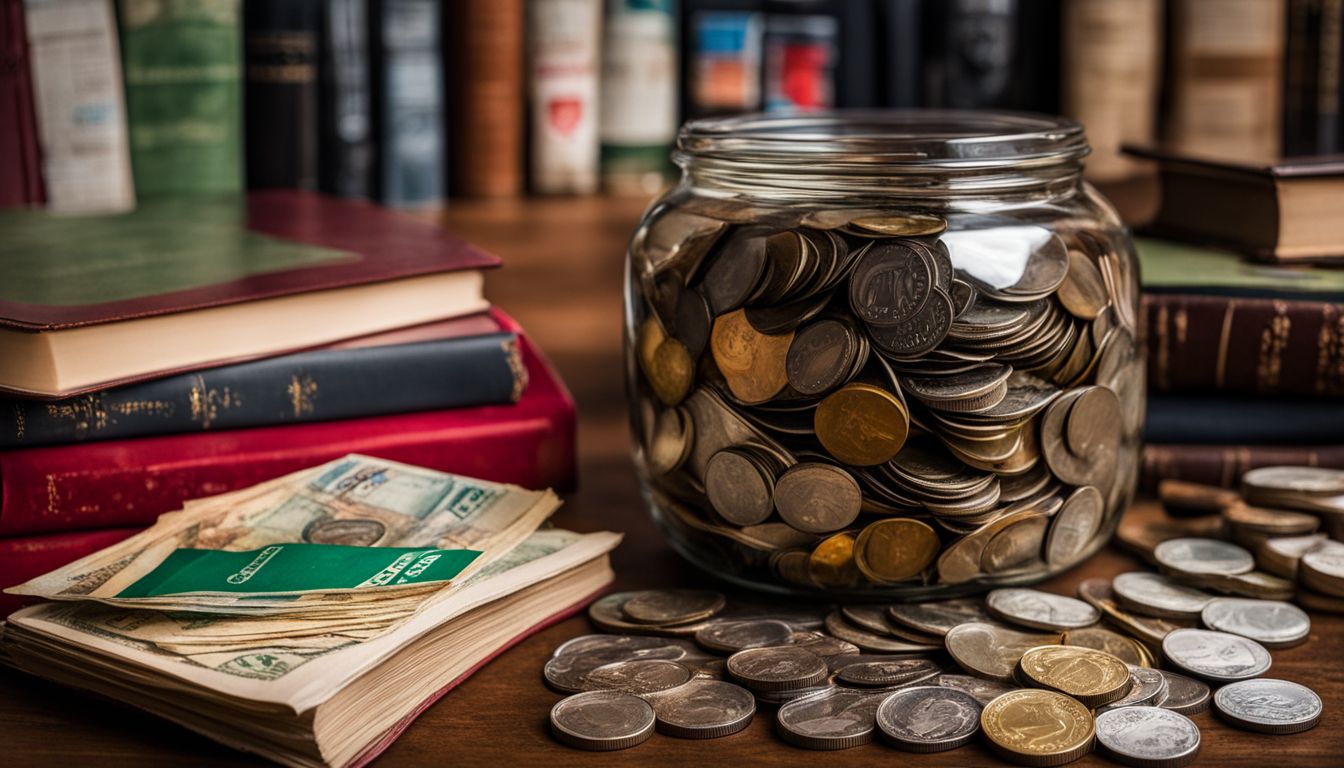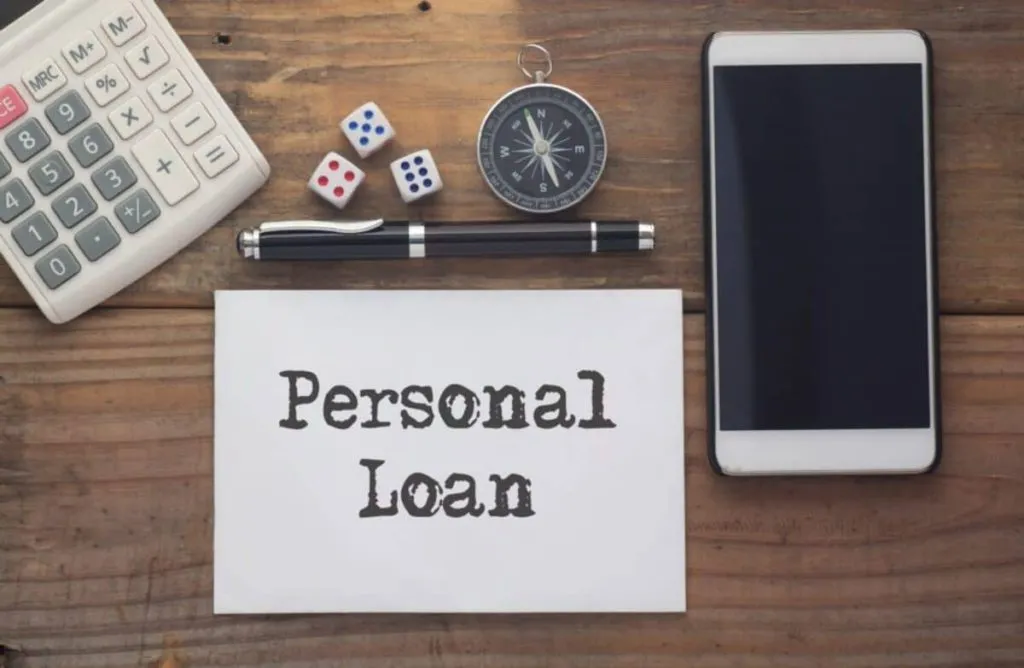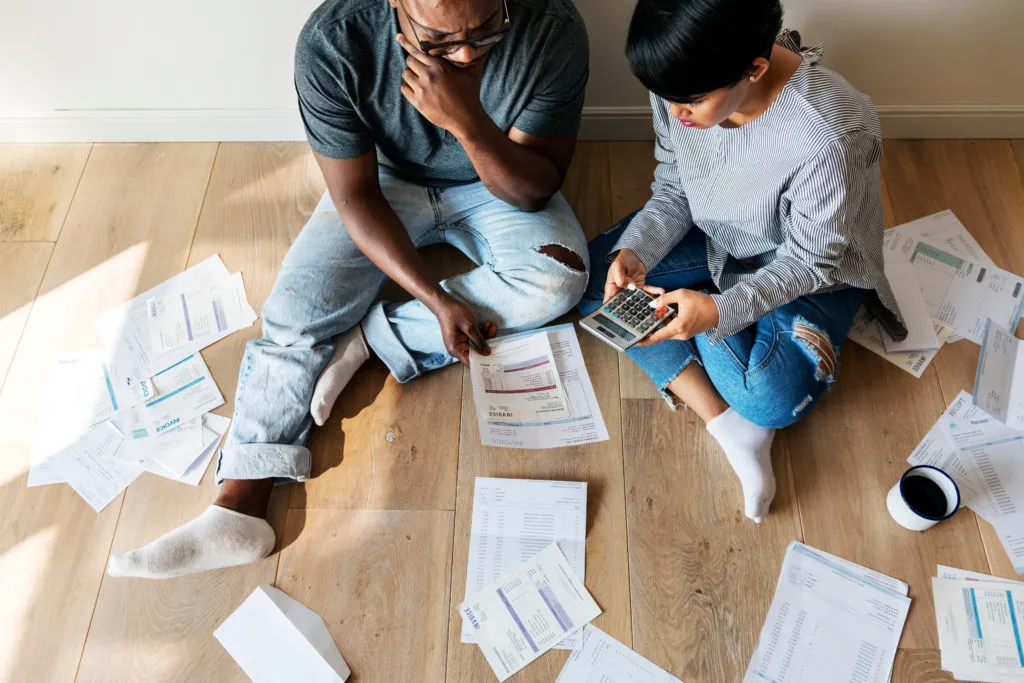Money worries keep many of us up at night. You’re not alone if the thought of an unexpected expense sends your pulse racing. Here’s one fact you should know: a solid emergency fund is your best friend for those unpredictable financial storms in Nigeria.
We have researched 10 practical steps to build that cushioning emergency fund, ensuring you’re prepared for whatever life throws your way.
Key Takeaways
- Start building your emergency fund in Nigeria by creating a budget and setting aside money from each paycheck.
- Cut back on unnecessary expenses to save more towards unexpected costs like medical bills or car repairs.
- Consider taking up side hustles for extra income that you can put directly into your emergency fund.
- Automate your savings so part of your income goes straight into the fund, making it easier to grow without thinking about it.
- Keep track of how much you save each month and adjust if needed to meet your financial goals for security and peace of mind.
Understanding the Need for an Emergency Fund
An emergency fund provides financial security during unexpected expenses and gives peace of mind, helping to avoid falling into debt. Understanding the need for an emergency fund is crucial for maintaining financial stability in Nigeria.
Unexpected Expenses
Life in Nigeria is unpredictable, and unexpected expenses can pop up at any time. These could be medical emergencies, car repairs, or sudden job loss that hits your finances hard. Saving for these unexpected expenses gives you a safety net to fall back on.
Without an emergency fund, these surprises can lead you into debt, creating more stress.
Building an emergency fund prepares you for life’s uncertainties. It provides financial security and peace of mind knowing you can handle whatever comes your way. Moving forward, understanding the importance of having this fund is crucial for everyone living in Nigeria.

Peace of Mind
Life in Nigeria can bring unexpected financial challenges. An emergency fund provides comfort and security, knowing that you have a financial safety net in place for any unforeseen circumstances.
Whether it’s a medical emergency or sudden car repairs, having savings set aside can alleviate the stress of dealing with unexpected expenses.
Having an emergency fund ensures that you are prepared for whatever life throws at you, providing peace of mind and allowing you to focus on your present without worrying about potential financial setbacks.
Avoiding Debt
To avoid debt, it’s crucial to have an emergency fund for unexpected expenses. Building this fund can provide financial security and help evade taking out unnecessary loans in Nigeria.
By setting realistic savings goals and contributing regularly, individuals can limit the need to borrow money when faced with unforeseen financial challenges. This proactive approach not only fosters economic stability but also reduces the reliance on credit and loans, ultimately promoting financial resilience within the Nigerian community.
Creating a safety net through an emergency fund ensures that Nigerians can navigate unexpected expenses without resorting to debt. It offers a sense of control over finances, minimizing the risk of falling into indebtedness during times of economic uncertainty or personal emergencies.
How Much Should You Save?
Set a realistic goal and allocate a portion of your income to savings. Consider individual needs when setting your emergency fund target.
Setting a Realistic Goal
Create a realistic savings plan by considering your income and expenses. Tailor your goal to suit your personal financial situation, allowing for flexibility as circumstances change.
Start small and gradually increase your savings target over time. Make sure it aligns with unexpected expenses that may arise in Nigeria.
Allocate a portion of your income towards savings each month. Focus on setting achievable short-term goals rather than one large amount, and track your progress regularly to stay motivated.
Considering Individual Needs
Assess your personal financial situation and requirements to determine how much you need for an emergency fund in Nigeria. Take into account your monthly expenses, any outstanding debts, and the stability of your income.
Recognize that individual needs vary, so be sure to set a realistic savings goal based on your specific circumstances. Consider starting with small, manageable saving goals instead of aiming for one large sum to build up your emergency fund over time.
By carefully analyzing and tailoring your approach towards building an emergency fund according to your individual needs, you can create a solid financial safety net for unexpected expenses in Nigeria.
Taking Out a Small Loan
When it comes to building your emergency fund in Nigeria, taking out a small loan might seem like an option. However, it is important to note that while loans can provide immediate funds, they come with the burden of repayment and potential interest charges.
Assess your financial situation meticulously before opting for a loan to avoid falling into debt. In any case, exploring other avenues such as setting achievable savings goals or cutting back on expenses should be prioritized over taking out a small loan.
Building your emergency fund through consistent saving and smart money management will provide more long-term financial security.
Top 10 Tips for Building Your Emergency Fund
Start with a budget to allocate funds for savings.
Encourage users to read more about ways to build their emergency fund in Nigeria.
Start with a Budget
To build your emergency fund in Nigeria, start by creating a detailed budget that outlines your income and expenses. This will help you understand where your money is going and identify areas where you can cut back to save more.
Consider setting aside a specific amount from each paycheck to allocate towards your emergency fund. Automating this process can make it easier to stick to your savings goals. By maintaining a solid budget and consistently contributing towards your emergency fund, you’ll be better prepared for unexpected financial challenges.
Remember: an informed budget lays the foundation for successfully growing an emergency fund in Nigeria.
Automate Your Savings
Automating your savings is a great way to consistently set aside money for emergencies. By setting up automatic transfers from your checking account to a dedicated emergency fund, you ensure that a portion of your income goes straight into savings without the need for manual action.
This method makes saving hassle-free and helps you stay disciplined in building your financial security. Automating savings also aligns with the idea of regular small contributions being essential to kick-starting an emergency fund while maintaining financial flexibility.
Moving on to “Track Your Progress” – let’s see how monitoring can help you build your emergency fund effectively.
Track Your Progress
To track your progress, keep a record of your savings growth regularly. Use a simple spreadsheet or notebook to note down how much you’ve saved each month. Reviewing this will help you stay motivated and on track towards reaching your emergency fund goal.
Regularly monitoring your progress can also help you make adjustments if needed, ensuring that you’re steadily building your financial security in Nigeria.
Moving forward, let’s delve into the benefits of having an emergency fund and why it’s crucial for financial well-being in Nigeria.
Cut Back on Expenses
To ensure you’re on track to building your emergency fund, it’s crucial to cut back on expenses. Look for areas where you can reduce spending, such as dining out less often, limiting unnecessary purchases, and finding more affordable alternatives for everyday items.
This will free up extra money to contribute towards your emergency fund without disrupting your lifestyle. By being mindful of your spending habits and making small adjustments, you can steadily increase the amount saved for unexpected financial needs.
Consideration of side hustles is advisable if you need additional income while saving. You might decide to take a part-time job or start a small business that aligns with your skills and interests.
Consider Side Hustles
Consider starting a side hustle to earn extra money for your emergency fund. You can take on small gigs like freelancing, tutoring, or selling handmade crafts. By allocating the additional income from your side hustle directly to your emergency fund, you can build it up faster.
Remember that every little bit counts when it comes to reaching your savings goals in Nigeria.
If you’re looking for tailored ways to boost your income and enhance your financial security in Nigeria, consider exploring different side hustles and finding one that suits your skills and interests.
Accessing Your Fund Responsibly
Accessing your emergency fund should be reserved for genuine emergencies, such as unexpected medical expenses or unavoidable home repairs. Limit withdrawals to only necessary and urgent situations to ensure that your fund remains intact for when it’s truly needed.
Avoid dipping into your emergency savings for non-essential purchases or frivolous spending. By exercising restraint and discipline in accessing your fund, you can maintain its effectiveness in providing financial security when unforeseen expenses arise.
The Benefits of Having an Emergency Fund
Having an emergency fund provides financial security and flexibility, helping you navigate unexpected expenses with peace of mind. It also allows you to maintain a solid budget, build wealth, and gain control over your personal finances.
Financial Security
An emergency fund in Nigeria is vital for creating financial security. Unexpected expenses can arise at any time, and having a safety net in place can provide peace of mind. By allocating a portion of your income towards savings and setting realistic goals, you are building financial stability that will safeguard you during unforeseen circumstances like medical emergencies or sudden job loss.
Building an emergency fund not only provides financial security but also allows for flexibility in managing unexpected situations. This fund enables individuals to navigate through challenging times without plunging into debt, ultimately contributing to their overall financial well-being by providing a sense of stability and confidence in facing the future.
Financial Flexibility
Financial flexibility is a key benefit of having an emergency fund in Nigeria. This fund gives you the ability to handle unexpected expenses without resorting to debt, providing peace of mind and financial security.
It also allows you to make choices about your money, giving you the power to navigate life’s uncertainties with confidence.
Having a financial cushion means that when those unforeseen expenses arise, you can cover them without disrupting your regular budget or dipping into savings meant for other goals.
MUST SEE: GTbank Salary Advance: All You Need to Know
Conclusion
In summary, by setting small saving goals and allocating a portion of income to savings, you can effectively build your emergency fund. Automating the savings process and tracking your progress are practical steps that lead to efficient results.
How will you start implementing these strategies for creating financial security in Nigeria? Remember, having an emergency fund provides peace of mind and helps avoid falling into debt during unexpected expenses.
Ultimately, taking these steps towards financial well-being can significantly impact your future stability.
FAQs
1. What are the best ways to start saving for an emergency fund in Nigeria?
To start, set small saving goals, create a realistic savings budget, and allocate a portion of your income to savings. This helps build financial security for unexpected expenses.
2. How much of my salary should I save each month?
Allocating a part of your salary, even if it’s just a little bit, is key. Establishing a solid budget can guide you on how much you can comfortably save without affecting your daily needs.
3. Can setting financial goals help me with my emergency fund?
Yes! Setting financial goals gives you clear targets to aim for. It makes saving money easier because you know what you’re working towards.
4. Should I limit how often I take money out of my emergency fund?
Definitely! Your emergency fund is for genuine emergencies only. Limiting withdrawals keeps the money there when you really need it.
5. Is automating the savings process a good idea?
Automating your savings is great because it takes the decision-making out of the process, ensuring that part of your income goes directly into your emergency fund without having to think about it every time.



